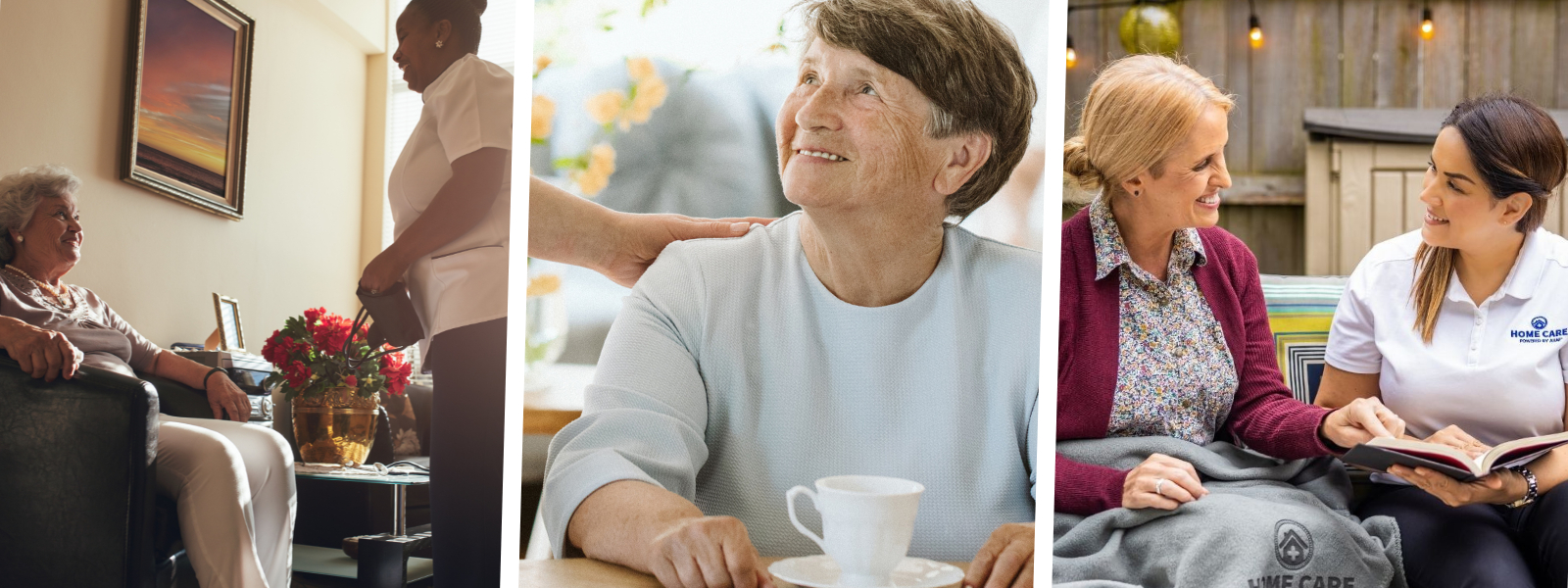
Forming a Bond with Your Elderly Client
July 21, 2022As a caregiver, your primary goal is to provide your client the personalized care they need to live out their years in comfort. However, caregiving is far more than the personal care you attend to or the meals you prepare. You’re more than someone who comes into a senior’s home to perform a task. You are an active participant in their lives.
As a result, your bond with your client may mean more to your client than you think. For many seniors, their caregiver is the person they see most frequently for the longest periods of time. As your relationship blossoms, you’ll grow to be their confidant as well as their companion.
Forming a bond with your elderly client will lead to a better overall working experience for both you, and the senior you provide aid to. The process is ostensibly simpler than you may have initially thought.
Be positive
A positive attitude can go a long way in establishing a connection with another person. The old saying “treat others the way you want to be treated” persists for a reason. If you are short and curt with someone, they’ll return that attitude—or at the very least, they will not strive to build a relationship.
The same goes for your client relationship. If you are stiff with your client, they’re likely to be more guarded with you. If you are positive and kind to your client, they’ll feel more comfortable in your care. You’ll interact with one another in a respectful, healthier way.
Listen
Naturally, you listen to your client as they express their needs, but go another step further. There’s a distinction between hearing your client and genuinely listening. Be mindful as they articulate stories from the past—your client has lived through some major cultural events, after all. They may share particularly inspiring or thought-provoking wisdom. When they chat about their day, do more than nod and hum. Engage with them by asking questions.
Your client will notice and greatly appreciate your authentic interest. You may find that, as time goes on, your client will become more open with you, allowing you to provide even better care.
Partake in activities with them
Similar to actively listening to your client, it’s important to engage with them on a deeper level than fulfilling caregiving tasks. Learn about their hobbies and make a conscious effort to be involved in them. If they are skilled knitters, find a spare pair of needles and ask them to guide you through a simple garment. If they enjoy bird watching, go on a walk in the park and ask them to teach you about the local wildlife.
Consider encouraging your client to find a new activity to try. Many seniors enjoy tasks like painting and puzzles to mix up the routine. These are great hobbies for you to enjoy alongside them.
Respect their personal autonomy
Caregiving can be a tricky landscape to navigate. For many people (especially those acting as a family caregiver for a senior loved one), caring for an older adult feels like a role reversal, which can lead some to infantilize their client. Some caregivers speak to their clients the same way they may speak to a child since they’re performing day-to-day tasks like bathing, dressing, and feeding. This, however, is insulting to seniors. They are still adults who had children and once held jobs, and they deserve to be treated as such.
Don’t talk down to your client. Speak to them the same way you would speak to any other adult. There will be occasions where you have to repeat yourself, but don’t simplify yourself because of that. When performing personal care tasks, always ask for your client’s permission before touching them. This will help them still feel like an independent individual.
Caregiving is a rewarding career
Forming a bond with your elderly client makes in-home caregiving more fulfilling than ever. You play an important role in the life of your client not only as their caregiver but their companion. At the end of every shift, you can go home knowing you made a positive impact.
For more information on how to become an in-home care worker with Home Care Powered by AUAF, call 773-274-9262
Articles:
-
How to Use FaceTime: a Senior’s Guide
March 20th, 2024 -
The Best Organic Cleaning Products for Caregivers
March 19th, 2024 -
Celebrating St. Patrick’s Day with Seniors
March 14th, 2024 -
Intellectual Activities for Seniors to Keep their Brains Stimulated
March 13th, 2024 -
Tips for Communicating with Seniors with Hearing Loss
March 12th, 2024 -
How to Learn a New Language as an Older Adult
March 7th, 2024 -
Foods that Support Bone Health in Seniors
March 6th, 2024 -
A Note to Our Staff for Caregiver Appreciation Day
March 1st, 2024 -
The Importance of a Senior/Caregiver Bond
February 21st, 2024 -
Recreational Sports as Fitness for Seniors
February 27th, 2024 -
Exploring the Wonders of Reminiscence Therapy
February 15th, 2024 -
Staying Educated on Alzheimer’s Disease and Dementia Care
February 14th, 2024
Call Now! 773.274.9262






